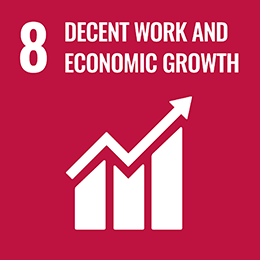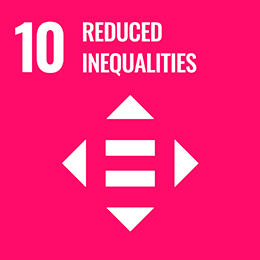We are all socialists now

Share this article
Which way next?
The political left, which loses so many battles, is always tempted to think that it is about to win the war. When the global banking crisis occurred in 2008 there were plenty of fevered analysts on the left who concluded that a crisis in capitalism was bound to lead to a leftwards shift in politics. In fact, a decade in which wage growth has been absent for the average worker has led to a populist reaction that is hard to locate on the usual left/right axis. Could it be different this time?
On the face of it, there is some reason to suppose so. Prime Ministers and Presidents from the political right, such as Boris Johnson in the UK, Donald Trump in the USA and Narendra Modi in India, have used state power to an extent that no doubt surprises even them, in response to the COVID-19 pandemic.
With the economy mothballed as the virus spread, private enterprise has been replaced by the state welfare of furlough schemes and government-backed cheap loan facilities. Government has set detailed regulations for all parts of daily life. There has been far greater central control of health and education than is usual. Six months ago, the developed democracies were classic mixed economies.
Suddenly, some of the dreams of the left have been implemented by the political right. The greater part of this transformation, of course, is the rapid adoption of a war-time economy. It is a mistake, though a very common one, to suppose that measures taken up during crisis ought to persist beyond the immediate emergency.
The Labour party in Britain has always taken intellectual sustenance from the success of the nationalisation of production and supply during the second world war. It seemed to justify the notion that state control of industry was a more efficient means of running enterprise than private endeavour.
The experience of shared sacrifice also suggests that a more co-operative style of life may be in the offing. During the food rationing of the second world war in Britain, the nutrition of the poor actually improved. Greater control of supply produced a more equal distribution.
Yet, six years after the end of the war, those dreams were over. Labour lost power in 1951 and did not gain it again for 13 years. The socialist moment yielded little in the United States and the European democracies oscillated between governments of the right and left in conventional fashion.
The same is likely to happen in response to COVID-19 where the most significant feature of post-pandemic politics is likely to be that punishment is meted out to the incumbent government. This is the lesson of the 2008 crash. A global financial meltdown can hardly be said to be the fault of any one national government yet it proved to be an event that was hard for governments to survive.
The team in power when the crisis hits almost always get the blame, whether they are at fault or not. The problem is not usually the crisis itself but the aftermath. The ratings of President Trump and Prime Minister Boris Johnson have both taken a severe hit because their respective electorates have judged their handling of the crisis to be inadequate.
With an important Presidential election looming in November, President Trump now trails his Democrat challenger Joe Biden by an average of nine percentage points across all the opinion polls. His satisfaction ratings have declined sharply since the pandemic struck as even erstwhile supporters have noticed an erratic response to a virus that the President at first refused to acknowledge.
Boris Johnson has seen a decline in his ratings of 26 points in little more than a month, a precipitous fall from his previous popularity. This too is a judgment on his perceived poor handling of the crisis as Britain’s excess death totals climbs higher than any of its European neighbours.
It is possible to preside over a crisis and turn it to political advantage. The Danish, German and New Zealand governments have all been rewarded with higher popularity as their leaders have been seen to respond with speed and efficiency. Yet even in countries that have repelled the virus comparatively quickly those governments would be well advised not to become complacent. It is not the pandemic that will hurt politically but its economic consequences.
The prospect of a global recession and the attendant job losses should strike fear into governments. Finance ministers from Conservative parties have pumped more money into the economy than would ever have been expected of their left-of-centre counterparts. The state has taken over large sectors of the economy.
Public subsidy of private enterprise has temporarily become the norm. Central banks have made money as cheap as possible. Perhaps the return to activity will be brisk and the recovery will be sharp. But the losses are bound to be severe and no government ever evades culpability for material loss. The historical precedents suggest that crises kill off incumbent governments and there is not much they can do about it.
The task is made especially difficult as this is not an era in which the people repose much trust in institutions. Over the period that the average worker has not had a pay rise, trust in government has declined. When people do not feel that politics is working for them, they turn away from the established parties. This is both the best explanation for the rise of populism and also a warning to parties of the left that an era of big government is not likely to last long.
The absence of trust is not just domestic. This has been a global crisis in which global institutions have been almost entirely absent. The European Union has been a phantom player. The reputation of the World Health Organization has been compromised by its closeness to China. The international financial institutions have had no serious role in co-ordinating a global response.
This has been a global crisis that has been met with a series of parochial responses. The changes will, nevertheless, be profound. Companies will be judged by the way they treat their staff as activity resumes. The vast inequalities of wealth that have been both revealed and accelerated by COVID-19 will be a source of political pressure.
The major remaining question is how much will really change? The Spanish flu pandemic in 1918 actually changed very little in the way that government was conducted. The surprising truth about COVID-19 may yet be that it turns out to alter less than we imagined (or hoped) it would while we were living through it.
The unwinding of the quasi-socialist emergency measures will prove to be difficult but that does not mean that good times are necessarily on the horizon for left-wing modes of thought. If, in the United States and in the UK, left of centre parties do come to power in due course, that will be due to the difficulty of governing during a crisis that has corroded trust in the incumbents.
Left wing politicians may inherit the mantle but there is no reason to think that is necessarily a mandate for any further left-wing measures.
Photo: © Niki Natarajan 2020
Artist: Stra
Article for information only. All content is created and published by CdR Capital SA. The views and opinions expressed in this article are those of the author(s). Information on this website is only directed at professional, institutional or qualified investors and is not suitable for retail investors. None of the material contained on this website is intended to constitute an offer to sell, or an invitation or solicitation of an offer to buy any product or service. Nothing in this website, or article, should be construed as investment, tax, legal or other advice.
Related articles
Covid-19
Exactly one month ago I wrote a mail to my friends and partners and told them, “This is real, and, we are already too late”. I was speaking about the illness we now know as the coronavirus (Covid-19). SARS and insurance/mortality statistics my evidence.

Social Fabric
Efficient high-speed French TGV trains with posters showing how to help an old lady with her bags. But arrive in Paris and scooters and pushbikes whizz towards the same old lady. No signs saying it is not permitted, so the assumption is that it’s OK.

Euro Clash
On Thursday June 23rd, the British people will vote on continued participation in the European Union. Does anyone truly know what they are voting for and, moreover, are those that could determine the outcome of the vote being addressed at all?





